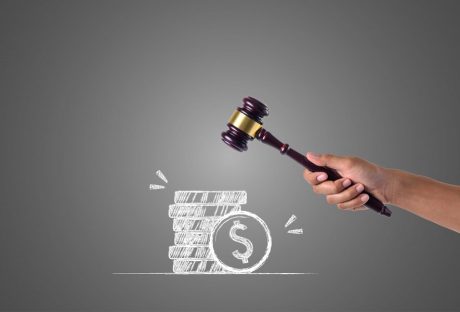The worst has happened. You got injured on the job, or your spouse hurt you in a fight.
Something happened to you while you were at the dentist, or you had a severe reaction to a latte.
Regardless, health care is expensive. There’s a chance that you’re not able to cover the bill.
You start wondering if there’s some other way to pay for your medical expenses. You talk to your company or ask for compensation. But no one is willing to do anything.
If this sounds like you or someone you love, it’s time to consider legal action. You can contact a personal injury lawyer who will help you get what you deserve.
But before you hire anyone, check out our six questions to ask a personal injury lawyer.
Why Hire a Personal Injury Lawyer?
Sometimes we get hurt, and it’s because of our own stupidity. But there are times when the blame rests on another party. This can be an individual, a company, or even a doctor. When this happens, it’s time to hire a personal injury lawyer.
There are many different kinds of lawyers who can help you. Choosing the right one depends on the personal injury questions you have.
Most personal injury lawyers can handle a car crash case. But what happens if there are many parties involved or if there is severe damage? You’ll need a lawyer with more experience in your type of case.
If a doctor injured you, then hire a lawyer with experience in medical malpractice. At least they need to know about medical procedures and misdiagnoses.
If you got hurt by a piece of machinery, then look for a lawyer with a background in corporate and negligence law.
Do some research into the nature of your case. That way you’ll be able to find the right personal injury lawyer for your needs.
What Information Do I Need Before I Talk to a Personal Injury Lawyer?
Keep in mind that scheduling a consultation with a lawyer is not the same as hiring them. You’re asking them in-depth questions about their background and career. You’d do the same for any contractor or real estate agent.
But before you sit down with a lawyer, it will help you to have a few things prepared.
First, you’ll need to record the details of your case. Write down everything that’s related to what happened. Describe the events in the order they happened, and be as detailed as possible.
If you need help, think of the 4 W’s. Who was involved? Where did the accident happen? When did it take place? What were you doing? In fact, what was everyone doing?
Try to be as factual as possible. If you lie, it will come out in court. Then you’ll be in trouble.
Gather any evidence you can. This includes things like:
- Police reports, tickets, arrest information, and toxicology results
- Eye-witness reports
- Photographs and videos
- Bills, receipts, medical records, and any diagnoses
Getting all this information in one folder will help you and the personal injury lawyer.
6 Questions to Ask a Personal Injury Lawyer
Hiring a lawyer is as personal as hiring a doctor or a therapist. It’s an expensive service, and you want to make sure you have the right lawyer for you. So check out our six questions to ask a personal injury lawyer before you hire them.
1. Have You Taken a Case Like Mine Before?
This is one of the most important questions to ask an attorney before hiring them. You want to make sure your case is in good hands, so don’t be afraid to ask about their experience.
Your lawyer should have years of experience working with cases like yours. It’s also important that they have experience winning cases, or making successful settlements.
Ask them for a reference list of all their cases. They should also have endorsements from past clients.
If your internal radar goes off, you can look up an attorney’s disciplinary records online. Some states need a lawyer’s bar number to do this. But other states like Georgia will list the lawyer’s name.
2. What is Your Opinion of My Case?
In other words, does this personal injury attorney think you’ll win?
This is one of the more dubious questions to ask a personal injury lawyer, but it’s an essential one. Their answer will help you make your decision about whether to hire this attorney.
You want them to give you an honest answer, of course. No decent lawyer wants to waste their time on a hopeless case, even if you are paying them.
They should give you an objective opinion about whether you’ll win your case based on the evidence you’ve given them.
That said, ask this question with an open mind. It’s easy for the victim of an accident to think they deserve compensation. If a personal injury lawyer is telling you it won’t happen, there might be some merit in that.
3. Will My Case Go to Trial?
Only 4%-5% of personal injury cases go to trial. That means there’s a good chance your case will settle out of court.
But no matter what the odds, a good personal injury lawyer will prepare to go to trial. In fact, it’s a red flag if the lawyer starts talking about settling out of court from the get-go.
Trials can be long and expensive for you. But if you have to go to court you want a lawyer who’s experienced. Ask them about their record in court, and whether the case won by a judge or jury.
Your lawyer should also be able to give you a timeline of how long a court proceeding takes.
While each case is unique, an experienced lawyer knows how things go at the local courthouse.
Regardless of whether you go to court, you need to talk with your lawyer about your level of involvement. Some people want to be at every meeting and deposition, but most lawyers won’t allow it. It’s often best for you to stay on the sidelines and trust your lawyer.
4. What are Your Fees?
This is another important question to ask an attorney. If you can’t afford this lawyer, then you’ll need to look for someone else.
A typical personal injury lawyer earns money based on contingency fees. That means you won’t pay any fees unless you win money damages in the lawsuit.
Once you do win the case, the personal injury lawyer will take a percentage of the money. This can range from 25% – 40% of anything you win from the lawsuit.
While this is a great incentive for your lawyer to win your case, it might not be the only bill. There are other costs you should ask about, like case-related costs. These are also known as “out of pocket” fees. Ask your lawyer about these fees, and who will pay them in case you lose.
Do not work with a personal injury lawyer who charges by the hour. These kinds of payment plans can get expensive in personal injury cases.
5. How Much is My Case Worth?
An experienced personal injury lawyer should give you an estimate on how much your case is worth. They’ll base this estimate on cases they’ve already won or worked on.
Most personal injury lawyers won’t give you a hard number to work with, but instead give you some kind of range. They need to explain how the different factors in your case will affect the bottom line.
You can also ask them point-blank whether they’ll make more for you than their competitors.
After all, this isn’t only about getting justice for you. It’s also about who’s going to pay your medical bills.
Money is always hard to talk about, but you have to do it. You can discover more about discussing your case worth by doing some research. Make sure that you factor in the lawyer’s contingency fee when you talk about how much you can make.
6. Who is Handling My Case?
This question is vital if you’re working with a large law firm. This is because that lawyer you spent all that time getting to know? He might not be the one representing you in court.
This might help you because you’ll have a larger team working on your case. Lawyers all specialize in different things. If your case is a complicated one, there’s a good chance it’ll get passed around the firm.
But that’s why it’s important to know who is handling your case, and why. You want to know who you need to contact in each situation. You should also ask about the track record of every lawyer on your case.
If your lawyer has less experience than the one you spoke to, ask about who is supervising them. Don’t be afraid to ask questions or voice your concerns.
Want More Tips About Hiring a Lawyer?
We have lots of informative blog posts on our site about the legal field. If you want to know about questions to ask a personal injury lawyer or other legal tips, check out our blog.
We also have articles on everything else you can imagine. From social media to entertainment to real estate, we have you covered. Take a look at our site for more great posts.
Read More:





















